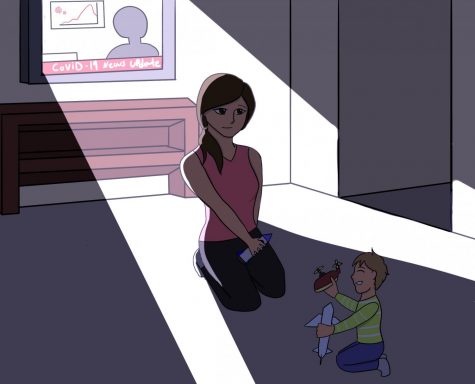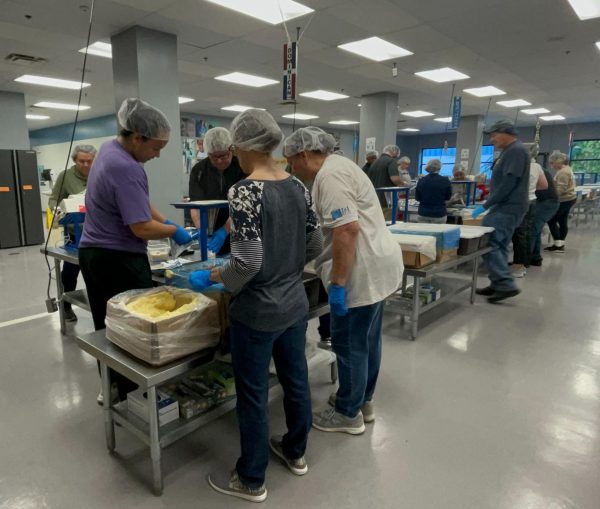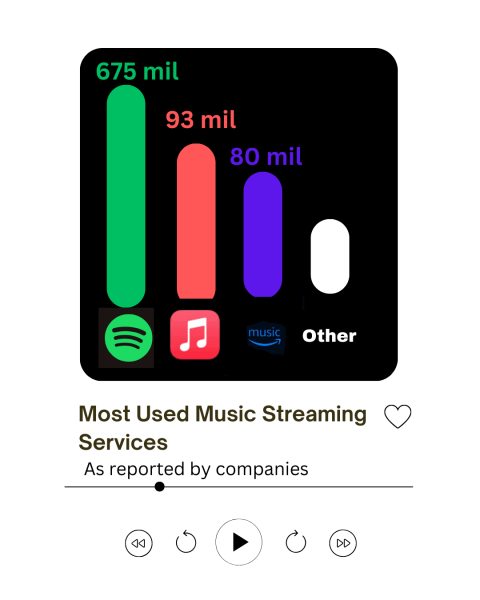Parents shouldn’t shelter kids from everything
Note: This piece is a staff editorial, which is an opinion article meant to reflect the opinions of the Drops of Ink staff. Because of this, the author’s name does not appear alongside the story, as the opinions shared in here are based on class discussions about the topic among 39 DOI staff members. The staff is composed of students of all grades from a variety of backgrounds and experiences; therefore, the editorial speaks to the publication’s view on a subject and is not representative of each staff member’s exact view on the issue at hand.

(Peyton Rodriguez)
When children inquire about a controversial concept, many have heard the phrase “I’ll tell you when you’re older” in response, or a fabrication in its place, from an adult with good intentions. However, evading the truth often leads to a level of mistrust when kids are later faced with reality.
The best method is for parents to reveal a degree of factuality and facilitate a discussion regarding difficult topics. In this way, adults can carefully expose their children to important events and advise them on how to process their resulting feelings.
On the other hand, it’s important to recognize a child’s need for innocence and the psychological effects of exposing them to a problematic or traumatic idea too soon. Another consequence of premature exposure could be introducing a child to hate, which can culminate in discriminating behaviors.
For these reasons, conversations about complex situations must be delivered at the right time and without elaborate details. Rather than age, parents should consider a child’s level of maturity. More specifically, adults should evaluate whether their child demonstrates open-mindedness and emotional intelligence.
Libertyville itself is often sheltered from a range of negative experiences due to the town’s socioeconomic status, resulting in lower crime rates and less violence. It is often challenging for parents to put into perspective the larger scope of current events to their children because they do not interact with these realities on a daily basis.
With the inevitable exposure to disturbing events, children walk on a tightrope between education and ignorance.
But instead of sheltering children, what if we educated them about Covid-19 deaths in an effort to teach them the importance of mask wearing? What if we taught about police brutality in order to inform children about the systemic racism in our country? There is no need to uncover gory details to deliver these messages.
If these conversations were commonplace, parents could view the discussions as opportunities to teach their children important lessons and create bonding moments.
Despite a parent’s unwavering efforts, sheltering a child often seems to invoke the opposite effect. Many parents would agree that telling a child to not watch a certain TV show makes them desire the activity even more. Explaining to a kid why they shouldn’t participate in an activity is an important aspect of their compliance and moral development.
Before parents avoid the time and effort required to conduct discussions, they may want to consider why they are sheltering their child in the first place. Sometimes, a parent’s actions may not be in the child’s best interest but rather to suppress their own worries or keep their children from growing up.
In addition, avoiding certain topics, such as mental health issues, can contribute to the already existing stigma within a community.
Social media, however, is a different beast and must be handled delicately. With such a wide variety of platforms, the exposure that children receive is unregulated. Fake news, especially on Twitter and Facebook, can easily alter children’s views because they are more perceptible to misinformation. Children’s brains are still developing and the toxic “likes” system of Instagram won’t help them.
Parents should allow their children to utilize Snapchat and messaging apps to connect with their peers but postpone the introduction of other social media applications until their kids are more mature. If platforms are introduced at a younger age, parents should instruct their children about cyberbullying and online safety.
Even in high school, students continue to be overly protected in various ways, such as through location tracking, strict curfews and from sensitive information within our families. While less rigid than young children, the sheltering of teenagers should also maintain a balance between trusting their child and creating regulations.
Although it is challenging to determine the extent of sheltering needed for a child, the most important aspect is communication and a commitment to fostering healthy mindsets in children.











